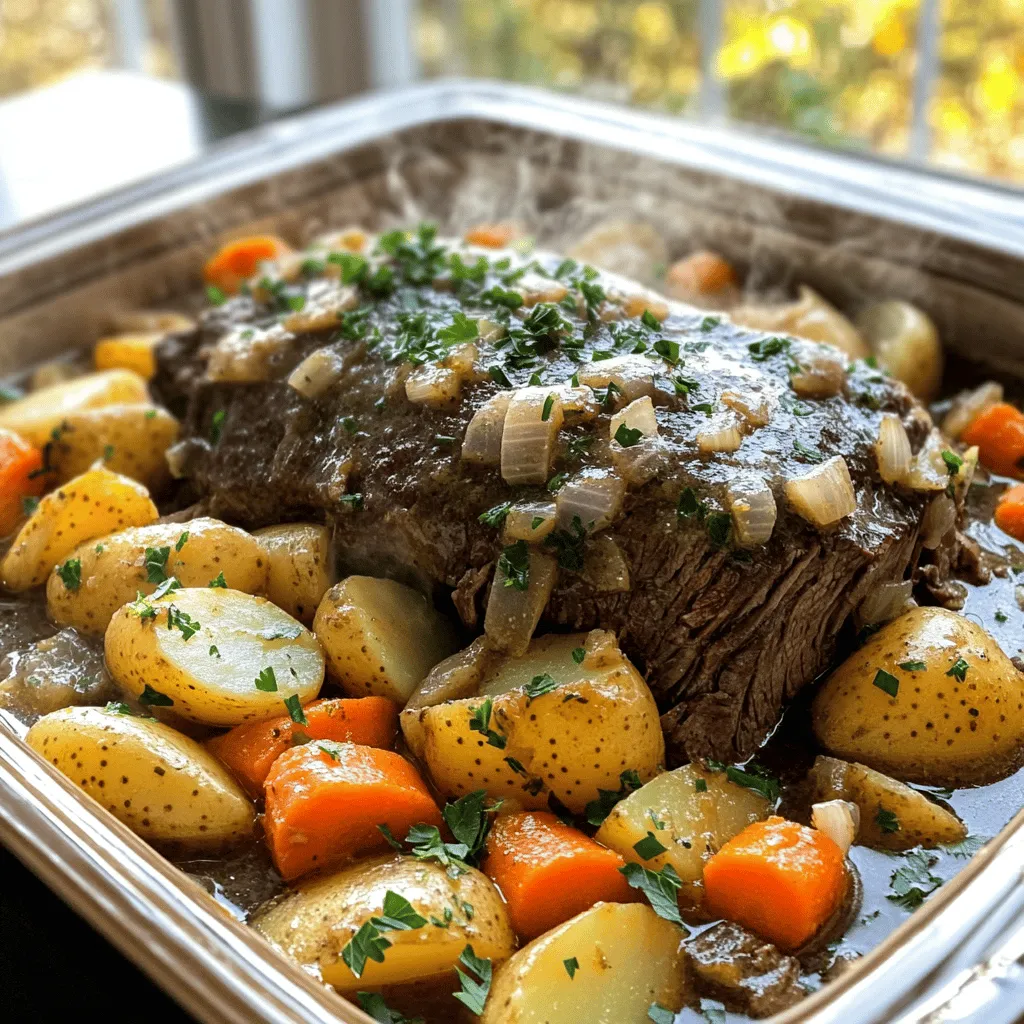Introduction
If you’re searching for a dish that perfectly balances comfort and nutrition, look no further than Creamy Tomato Cottage Cheese Pasta. This delightful recipe is quickly gaining traction in kitchens around the world as a healthier alternative to traditional creamy pasta dishes. The creamy texture and rich flavors come together seamlessly, offering a deliciously satisfying experience without the guilt often associated with heavy cream sauces.
Cottage cheese, a versatile and protein-packed ingredient, is taking center stage in this dish, transforming it into a dinner option that is not only hearty but also light and nourishing. As the trend of incorporating cottage cheese into various recipes continues to grow, home cooks are finding innovative ways to enjoy its benefits. The creamy richness of cottage cheese provides a delightful mouthfeel that rivals that of traditional cream, making it an ideal choice for pasta lovers looking to lighten their meals while still indulging in comfort food.
The appeal of this Creamy Tomato Cottage Cheese Pasta extends beyond its flavor profile; it is also packed with health benefits. Tomatoes are a rich source of antioxidants, vitamins, and minerals, while cottage cheese brings a boost of protein to the table. Together, they create a balanced meal that is both satisfying and beneficial for your health. Whether you’re preparing a quick weeknight dinner or an impressive meal for guests, this pasta dish is sure to please.
Understanding the Ingredients
Importance of Pasta Choices: Fusilli vs. Penne
When it comes to pasta, the choice of shape can greatly influence the overall experience of your dish. For this creamy tomato sauce, fusilli and penne are both excellent options. Fusilli, with its spiral shape, is perfect for holding onto the sauce, ensuring that each bite is packed with flavor. On the other hand, penne’s tubular structure allows the creamy sauce to seep into the pasta, creating a delightful burst of flavor with every mouthful. Ultimately, the choice depends on personal preference; both options will work beautifully in this recipe.
Benefits of Using Cottage Cheese: A Healthier Alternative to Heavy Cream
Cottage cheese serves as the star ingredient in this pasta dish, replacing traditional heavy cream with a healthier alternative. This switch not only lowers the calorie count but also adds a wealth of protein and calcium. Cottage cheese is known for its creamy texture, which can mimic the richness of cream without the added fat. Additionally, it contains probiotics that are beneficial for gut health. By incorporating cottage cheese into your pasta, you’re not only enhancing the dish’s creaminess but also boosting its nutritional profile.
Nutritional Value of Tomatoes: Fresh vs. Canned
Tomatoes are a key component of this recipe, adding both flavor and nutrition. Fresh tomatoes can provide a vibrant taste and a juicy texture, making them a wonderful choice when in season. However, canned tomatoes are a convenient option that can offer excellent flavor and nutrition year-round. When using canned tomatoes, opt for those with no added sugars or preservatives for the healthiest choice. Both fresh and canned tomatoes are rich in vitamins C and K, potassium, and other essential nutrients. They also contain lycopene, a powerful antioxidant linked to various health benefits, including improved heart health and reduced cancer risk.
The Role of Herbs and Spices: Enhancing Flavor Profiles
To elevate the flavor of your Creamy Tomato Cottage Cheese Pasta, a blend of herbs and spices is essential. Fresh basil is a classic pairing with tomatoes, adding a fragrant and aromatic touch that brightens the dish. Oregano, thyme, and parsley can also enhance the flavor profile, giving the sauce a well-rounded taste. Garlic plays a crucial role in building the foundation of the sauce, providing depth and richness. For those who enjoy a bit of heat, incorporating red pepper flakes can add a delightful kick. The amount can be adjusted according to your heat preference, allowing you to customize the dish to suit your taste.
Optional Ingredients: Red Pepper Flakes for Heat
While the creamy tomato sauce is delicious on its own, adding red pepper flakes can take the dish to the next level. These tiny flakes pack a punch, providing an exciting contrast to the creaminess of the sauce. If you’re sensitive to spice, start with a small pinch and increase as desired. Alternatively, if you prefer a milder flavor, feel free to omit the red pepper flakes altogether. The beauty of this recipe lies in its adaptability; you can tailor it to your preferences while still maintaining its signature flavor.
Step-by-Step Preparation
Cooking the Pasta: Techniques for Achieving Al Dente Perfection
To achieve perfect al dente pasta, start by bringing a large pot of salted water to a boil. The salt not only enhances the pasta’s flavor but also helps to season it during cooking. Once the water is boiling, add your choice of pasta — fusilli or penne — and stir gently to prevent sticking. Follow the cooking time recommended on the package, but be sure to check for doneness a minute or two before the suggested time. Al dente pasta should be firm to the bite, offering a satisfying texture that holds up well when combined with the creamy sauce.
Once cooked, reserve about a cup of the pasta water before draining. This starchy water can be used later to adjust the consistency of the sauce, ensuring that it clings beautifully to the pasta. After draining, toss the pasta with a drizzle of olive oil to prevent it from sticking together while you prepare the sauce.
The Art of Tomato Sauce: Tips for Sautéing Garlic Without Burning
Creating a flavorful tomato sauce begins with sautéing garlic, which releases its aromatic oils and enhances the dish’s overall taste. In a large skillet, heat a couple of tablespoons of olive oil over medium heat. Once the oil is hot, add minced garlic and sauté for about 30 seconds, stirring constantly to prevent burning. Garlic can quickly go from golden to bitter, so keep a close eye on it. When the garlic becomes fragrant and lightly golden, it’s time to add the tomatoes.
You can use diced fresh tomatoes or canned tomatoes, depending on your preference. If using fresh tomatoes, allow them to cook down for several minutes until they soften and release their juices. If using canned tomatoes, simply add them to the skillet, breaking them up with a spoon if necessary. Season with salt, pepper, and your choice of herbs, and let the mixture simmer for about 15 minutes. This will allow the flavors to meld and develop, creating a rich and delicious sauce.
Combining Flavors: How to Properly Integrate Cottage Cheese into the Sauce for Creaminess
Once your tomato sauce has simmered and thickened, it’s time to introduce the cottage cheese. Remove the skillet from the heat to avoid cooking the cottage cheese too quickly. Using a spoon or spatula, add the cottage cheese to the sauce and stir gently until it is fully incorporated. The residual heat from the sauce will help to soften the cottage cheese, creating a creamy and luscious texture.
To achieve a smoother sauce, you can also use an immersion blender to blend the cottage cheese into the sauce until you reach your desired consistency. This step is optional and depends on whether you prefer a chunkier sauce or a silky-smooth finish. If opting for the latter, blend the sauce carefully, as it can splatter.
Achieving the Right Consistency: Understanding When to Add Pasta Water
As you combine the pasta with the creamy tomato sauce, you may find that the sauce is too thick. This is where the reserved pasta water comes into play. Gradually add small amounts of the starchy water to the sauce while tossing the pasta, allowing you to achieve the desired consistency. The pasta water not only thins out the sauce but also helps it adhere better to the pasta, creating a cohesive dish.
Continue to toss the pasta until it is evenly coated with the sauce, adjusting the thickness as needed. Taste and season further if necessary, ensuring that every bite is bursting with flavor. Once you’ve reached the perfect consistency, your Creamy Tomato Cottage Cheese Pasta is ready to serve, offering a delightful balance of flavors and textures that will satisfy both your taste buds and your desire for a healthy meal.

Serving Suggestions
When it comes to serving your creamy tomato cottage cheese pasta, presentation plays a crucial role in enhancing the dining experience. Start by plating the pasta in generous portions, using a large spoon or tongs to twirl the pasta into a nest shape on each plate. This not only makes the dish visually appealing but also showcases the vibrant colors of the creamy sauce and tomatoes.
For an added touch, sprinkle freshly chopped herbs, such as basil or parsley, on top of the pasta. This not only enhances the flavor but also provides a pop of color that makes the dish more inviting. A light drizzle of extra virgin olive oil can also elevate the presentation and add a touch of elegance.
In terms of pairing, consider serving your creamy tomato cottage cheese pasta with a fresh arugula salad dressed in lemon vinaigrette. The peppery taste of the arugula complements the creaminess of the pasta beautifully. Alternatively, a side of garlic bread or bruschetta can add a delightful crunch and enhance the overall meal experience. These sides balance the richness of the pasta and provide a well-rounded dining experience.
If you’re planning to make this dish ahead of time or have leftovers, proper storage is essential to maintain quality. Allow the pasta to cool to room temperature before transferring it to an airtight container. It can be stored in the refrigerator for up to three days. To reheat, add a splash of water or a little extra tomato sauce to prevent the pasta from drying out. Heat gently on the stovetop or in the microwave until warmed through.
Health Benefits of Cottage Cheese
Cottage cheese is a powerhouse of nutrition that adds both flavor and health benefits to your creamy tomato pasta. A 1-cup serving of low-fat cottage cheese typically contains around 28 grams of protein, making it an excellent choice for muscle repair and growth. Additionally, it is rich in calcium, which is vital for bone health, and contains lower fat content compared to traditional creamy sauces.
When compared to typical creamy pasta sauces, the calorie and fat savings are significant. A standard cream-based sauce can contain over 400 calories and 30 grams of fat per serving. In contrast, this creamy tomato cottage cheese sauce provides a similar level of creaminess and satisfaction while keeping the calorie count significantly lower. This makes it a smart choice for those who are calorie-conscious or looking to maintain a healthier diet.
Moreover, this recipe caters to various dietary lifestyles. It is vegetarian-friendly, allowing those who avoid meat to enjoy a hearty meal. Additionally, with careful selection of ingredients, it can fit into low-carb or high-protein diets, making it versatile and inclusive for different eating preferences.
Customization Ideas
One of the best features of creamy tomato cottage cheese pasta is its adaptability. If you’re looking to add more nutrition and flavor, consider incorporating a variety of vegetables. Spinach, bell peppers, or zucchini can be sautéed and mixed into the pasta for added texture and nutrients. You can also toss in some cooked chicken, shrimp, or even chickpeas for additional protein to make the dish even more satisfying.
For those with gluten sensitivities, gluten-free pasta options are widely available and can be easily substituted in this recipe. Look for brown rice, quinoa, or chickpea pasta for a hearty and nutritious alternative that maintains the dish’s integrity. Cooking times may vary, so be sure to follow package instructions for the best results.
Adjusting the spice level is another way to make this dish your own. If you prefer a milder flavor, you can omit red pepper flakes or use a smaller amount. Conversely, if you enjoy a spicy kick, don’t hesitate to add more red pepper flakes or even some diced jalapeños to the sauce. Experimenting with different herbs and spices, such as oregano or smoked paprika, can also add unique flavors to the dish.
Conclusion
In summary, creamy tomato cottage cheese pasta is not only a simple and delicious recipe but also a versatile dish that can cater to various tastes and dietary needs. Its ease of preparation, combined with the vibrant flavors of the creamy tomato sauce and the protein-rich cottage cheese, makes it an ideal choice for weeknight dinners or special occasions.
This dish can be dressed up with elegant presentations and paired with complementary sides, making it suitable for formal gatherings or casual family meals alike. With its health benefits and customization options, it invites you to get creative in the kitchen. Whether you prefer it with added vegetables, proteins, or a spice adjustment, this recipe encourages experimentation and personalization.
So go ahead and embrace this deliciously creamy pasta – it’s not just a meal; it’s a canvas for your culinary creativity. Enjoy the process of making it your own, and savor each bite of this delightful dish.




